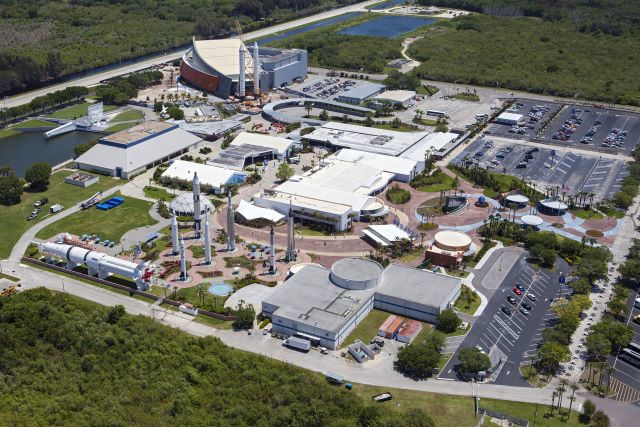
This January, the University of Central Florida (UCF) marks its fourth year as a Hispanic-serving institution (HSI). UCF also prides itself on supporting the space program as part of its original charter. Since 1968, about 30 percent of Kennedy Space Center (KSC) employees have UCF degrees, with more interns at KSC than any other university.
Recently, UCF announced that more than 20 faculty, researchers, students, and alums are working on projects supporting NASA’s return to the moon.
According to UCF Today, while some faculty and students work on the hardware to get us to the moon, others focus on keeping space explorers safe.
In an interview with UCF, Kerri Donaldson Hanna, an assistant professor of physics and planetary science, who is involved in several of NASA’s moon-related missions, said UCF is engaged in lunar missions that will launch and begin orbiting the moon in 2023.
The Lunar Trailblazer will make high spatial and spectral resolution maps of critical regions on the lunar surface, including those thought to have water and those geologically interesting.
More than 30 UCF alums connected to Kennedy Space Center are involved with the Artemis 1 mission. NASA Test Director for Exploration Ground Systems Dan Florez, who earned his bachelor’s degree in aerospace engineering from UCF, is said to credit the university’s dynamic aerospace program, involvement with a student rocketry club, and industry connections for success at Kennedy Space Center (KSC)
Tiffaney Miller Alexander, the medical and environmental services division chief at KSC, leads a team of medical and environmental professionals ensuring the protection and wellness of the KSC workforce, workplace, and environment, which are essential to the Artemis (1 and future) missions. She earned her bachelor’s in electrical engineering and a master’s and doctorate in industrial engineering from UCF.
Perla Latorre-Suarez, pursuing a master’s degree in aerospace engineering, and her mentor Professor Seetha Raghavan are working on several techniques to keep spacecraft safe while traveling in space.
Latorre-Suarez is researching using 3D-printed sensors that could be made in space and would monitor the structural integrity of the components and vehicles used by explorers on other planets. Latorre-Suarez recently returned from a summer internship at NASA’s Langley Research Center in Virginia. She worked with NASA scientists to help design ceramic coatings that protect lunar vehicles from the moon’s dust.
The researchers are also studying space-based space surveillance networks that would provide real-time tracking information in lunar space, which can be considered a new highway camera system for the upcoming launch of Gateway — a small, human-tended space station orbiting the moon that is part of the Artemis program and will support sustained deep space exploration and research.
Click here to read more on the many projects at UCF supporting the U.S. space program, return to the moon, and interplanetary exploration.
The U.S. Army Corps of Engineers has been tasked with…
Brown and Caldwell, a leading environmental engineering and construction firm,…
Humboldt State University, one of four campuses within the California…